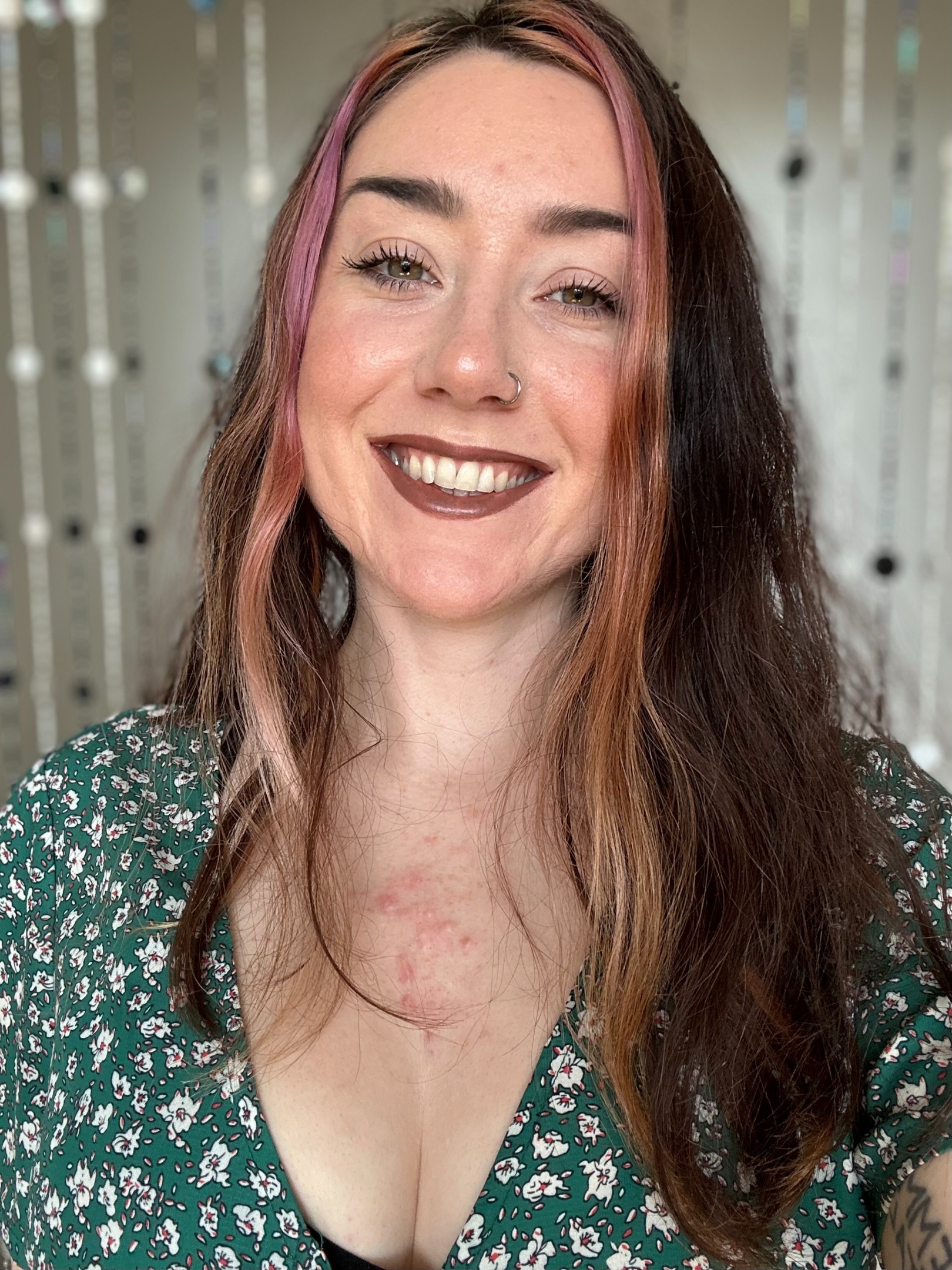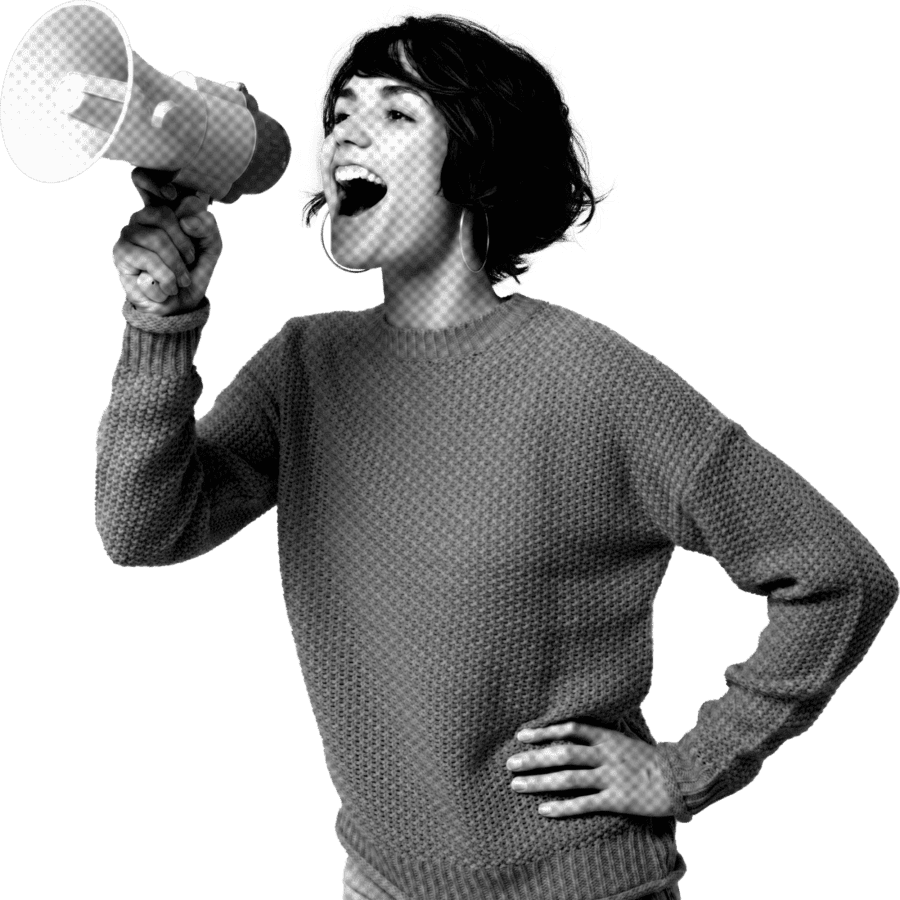I’m Emily and I was born with a physical disability. As a disabled freelance writer who has to market themselves, this article will offer insights into how you, as a person or a company, can, not only reach your desired audience of people with disabilities, but really connect to them on a deeper and more authentic level through your marketing.
Thanks to the support of a disability charity, I have been fortunate enough to be surrounded by a community of other people with disabilities throughout my life, learning, growing and sharing our experiences with one another. This doesn’t mean I represent or can speak for everyone who has a disability.
There are many nuances when it comes to the Disabled community, and even when two people have the same disability, their lived experiences are going to be very different. That’s why it’s important to really listen, understand and work with your Disabled audience and customers, rather than assume what they might need from you and your brand.
I’ll discuss how best to represent disability – which unfortunately is where most people slip up – what you can do outside of marketing and the power of listening to and telling stories. One of the main focuses of this piece will be on learning as much about the community you are trying to reach as you can, that begins with being able to identify your Disabled audience.
Table of Contents
Who Are The Disabled Audience?
Your disabled audience will include anyone under the umbrella of disability – which in the UK means 24% of the population, being the largest minority group in the world -. This is usually determined by people identifying as Disabled, and even though there are standard definitions for what constitutes a person as having a disability, it is usually fairer and safer to let one assume their own disability. Even if you feel that there is a clear indication that a disability is present, some people who experience injuries, mental health issues, or congenital conditions, for example, prefer not to claim the word disability to describe themselves as this is not helpful for them and this must be respected.
However, this doesn’t mean that they won’t benefit from your targeted messaging towards those with disabilities, it just means that there has to be a consideration around terminology within your marketing. Using broad terms to reach a wider audience can be beneficial, e.g. addressing “people with disabilities”, but telling singular stories that have a universal appeal can breed a deeper connection, e.g. “Sally often feels isolated and [insert how you will tackle this]”, because this is an issue that most of us can relate to.
Disabilities vary widely but the way they affect us; isolation, physical pain, accessibility issues, mental exhaustion, for example, can be similar, and therefore instead of trying to identify individual differences or tackle a specific singular issue, trying to connect with a wider audience who may all have similar ways in which they are affected — despite what they choose to identify as — will provide a bigger impact.
Why is Brand & Consumer Connection Important?
76% of consumers say they buy from brands they feel an emotional connection to but often, people with disabilities will grow up feeling as though they don’t have many relatable connections. We are usually the only Disabled member of our family or school system, and therefore may not have many role models or people we can learn from and/or replicate.
But consider this: Disabled people want disabled role models, our own ways of functioning to be enough and the type of connection only one can get from being face-to-face with another person who really “gets” them.
Connection is especially important for those with disabilities because when we are truly seen, heard and understood, we are not only loyal to your brand, but feel a real sense of belonging and therefore are able to live more enriching lives.

The Power of Individual stories in Marketing
Telling stories can elevate your brand significantly: companies with a strong brand story outperform their competitors by 30% – that is huge!
Disability is often put in one bracket and under one umbrella, so by reaching further and connecting to individual stories, as opposed to lumping all Disabled people as one, will offer you a deeper insight into how your audience truly operates. When it comes to digital marketing, a simple way of doing this is by collaborating with Disabled creators, they will know how to connect with their own audiences in a very personal and authentic way, at the same time as you tap into different lived experiences within the community.
A simple way of understanding your Disabled audience is through market research. Each individual person will have their own experience and perspective of their disability. Your job as a marketer trying to reach a Disabled audience is to use this information to find common ground; a hook that your audience can instantly relate to, for example.
How to Accurately Represent Disability in Marketing
Disabled people are whole, well-rounded people who live fulfilling lives. This shouldn’t have to be said, but unfortunately attitudes towards those living with disabilities are still a major concern, with 3 out of 4 disabled people experiencing negativity towards them in the past five years.
This means that solely representing us as the token Disabled person will not suffice. That, and it is usually obvious to an audience, which can deter people from wanting to work with you or buy from you. Common assumptions are placed onto people with disabilities, negative stereotypes and narratives that don’t support our wholeness, let alone the best version of ourselves. As a marketer, you have a responsibility to tell accurate and authentic stories of the Disabled community, as you will be affecting the way we are viewed in society.
Accurately represent the whole story of who we are, not some cookie-cutter version of our experience.
Speak directly to your Disabled audience
Often, disability is left out of the conversation, and non-disabled people can be apprehensive about saying “disability”, as if by saying the word they’re going to offend us. This is not the case.
Addressing the audience directly can make a big impact on Disabled people who often feel forgotten or left out. Even if we can relate to something within your marketing, having that confirmation that it is us you’re speaking to makes us feel that little bit more validated and seen.
Tell stories from our perspective
Harvard Business Review found that brands that use emotional storytelling are more likely to be remembered and shared. When you use Disabled people as the centre of your story, as opposed to someone close to us like a parent or carer, we are able to connect to it on a deeper emotional level. Make us the main character and narrator in your marketing, campaigns and advertising which lets us know that you really understand who we are.
Don’t be afraid to be different
Disabled people have to navigate life differently so our unique way of operating gives us an eye for the outside-the-box thinkers, we love to see brands doing things differently.
When you do things differently, have original ideas and address divergent perspectives, you send a message to your audience that says “it’s okay to be different”. The best way to stand up in the digital world is to be different, by sharing your brand’s tone of voice in an unapologetic way you are going to reach your right audience.
Benefits of Connecting with Your Disabled Audience
The benefits of connecting with your disabled audience include:
- The opportunity to change common unhelpful stereotypes by telling our stories and uplifting positive, well-rounded narratives.
- Practising inclusion, which, apart from creating a sense of belonging and community with your consumers, is a smart move for any business.
- Tapping into the spending power of the disabled community: The Purple Pound, which is worth £274 billion in the UK alone.
- The encouragement and celebration of disability which could influence a kinder, more empathetic world.
Brands that are Connecting With Their Disabled Audience in the Right Way
‘Assume That I Can’ by Coor Downs for World Down Syndrome Day:
This advert doesn’t just include and represent people with Down Syndrome, it centres them as the main character of the story and breaks down common assumptions that those with Down Syndrome often face.
‘Check in on Those Around You’ by Norwich City Football Club for World Mental Health Day:
This is the perfect example of challenging common stereotypes. It’s often assumed that those who are more reserved, quiet and less expressive will have depression, but this piece of marketing turns that notion on its head in a thought-provoking, deeply moving way.
‘The Greatest’ by Apple
This ad was part of their marketing efforts for their accessible technology. Every single person in this advert has a disability, and Apple’s products are paired up to overcome an obstacle that each individual faces in a seamless, empowering way.
LEGO Friends
Lego introduced new characters with complex emotions; including ADHD, Anxiety, Downs Syndrome, Vitiligo and Limb Difference: The introduction of these new characters and the story told within the advert’s messaging is simply this: all children have different needs, friendships are complex, but that is what makes life great.
This advert came about because LEGO identified a need for it within the research they conducted which revealed “two in three kids (68%) want to see more toys and characters portray different emotions to better reflect real life” – well done LEGO for listening.

Conclusion
Connecting to your disabled audience is essential, and it goes beyond representation. It’s about truly listening and understanding the community.
Engaging with the Disabled community also means improving customer loyalty and reaching a wider audience. Doing the work outside of your marketing to learn about the multidimensional experience of those who navigate life differently around you, will improve the quality and success of your business and enrich the lives of your audience and customers.
If you want to learn more about how your brand can connect with your Disabled customers, the team at Purple Goat are experts and can handhold you through the whole process!




